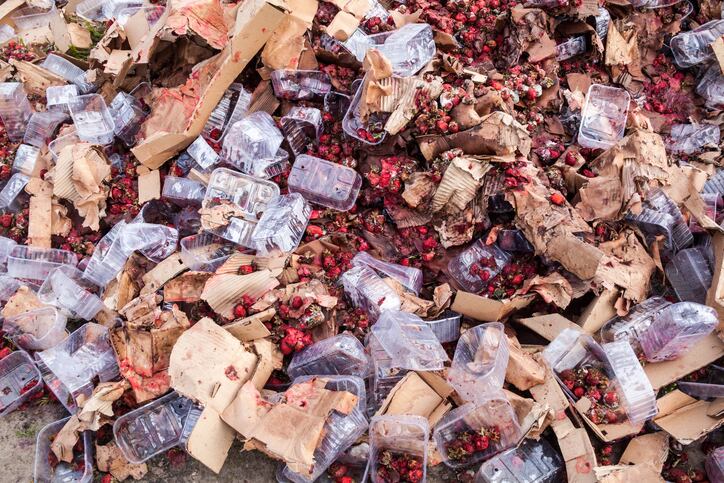While large-scale, intensive agriculture has increased food availability – in some regions, its impact on the environment has been “considerable” and “adverse”, write the researchers from the Research Institute of Organic Agriculture in cooperation with Scotland's University of Aberdeen, Austria's Alpen-Adria University and Swiss ETH Zurich.
These range from an over-supply reactive nitrogen, which pollutes the soil and water supplies, greenhouse gas (GHG) emissions and biodiversity losses.
Organic agriculture, which prohibits synthetic fertilizers and pesticides, promotes crop rotations and focuses on soil fertility and closed nutrient cycles, may outperform industrial agriculture on ecological factors but it generates lower yields, meaning it needs more land to produce the same amount.
“But when combined with complementary changes in the global food system, namely changed feeding rations, and correspondingly reduced animal numbers, and changed wastage patterns, organic agriculture can contribute to feeding more than 9 billion people in 2050, and do so sustainably,” write the authors in an open access article in Nature Communications.
If this seems like an insurmountable task for such a diverse set of food industry stakeholders to achieve, the researchers have some good news: “None of the corresponding strategies needs full implementation and their combined partial implementation delivers a more sustainable food future.”
Factoring in other changes
Research in this area until now has been too narrowly focused on production, yields and environmental impacts per unit output of a given crop, without taking into account other macro changes that could make a difference, they say.
In this study, the researchers used the SOL-model, a mass-flow model of the global food system, to simulate the main agronomic characteristics of organic farming and hypothesise the impacts of a conversion on production and the environment. They then factor in the impact of two additional changes to the food system. Firstly, a reduction in the amount of arable land used to grow animal feed and the corresponding fall in livestock and animal-based products, and secondly, a reduction in food waste.
Given that the United Nations’ Food and Agriculture Organisation (FAO) estimates that between 30 and 40% of food produced is wasted globally, reducing food waste would offer a complementary approach to use resources more efficiently.

Take up these challenges
In terms of the impact on diet, the researchers say all scenarios provided the same amount of calories, and a 20% increase in legume share of the organic cropping area resulted in an increased protein-to-calorie ratio, 10% above the minimum level of 10% recommended by the Food and Nutrition Board of the US National Academy of Sciences.
In light of these conclusions, the researchers have a take-home message for organic suppliers and pro-organic stakeholders: “The development of organic agriculture in the future should take up these challenges on the consumption side, and not only focus on sustainable production.
"This would, in particular, reduce the necessity for yield increases, and a wise combination of production and consumption measures could provide an optimal food system.”
Source: Nature Communications
“Strategies for feeding the world more sustainably with organic agriculture”
Available online ahead of print 14 November 2017, doi:10.1038/s41467-017-01410-w
Authors: Adrian Muller, Christian Schader, Nadia El-Hage Scialabba, Judith Brüggemann et al.
